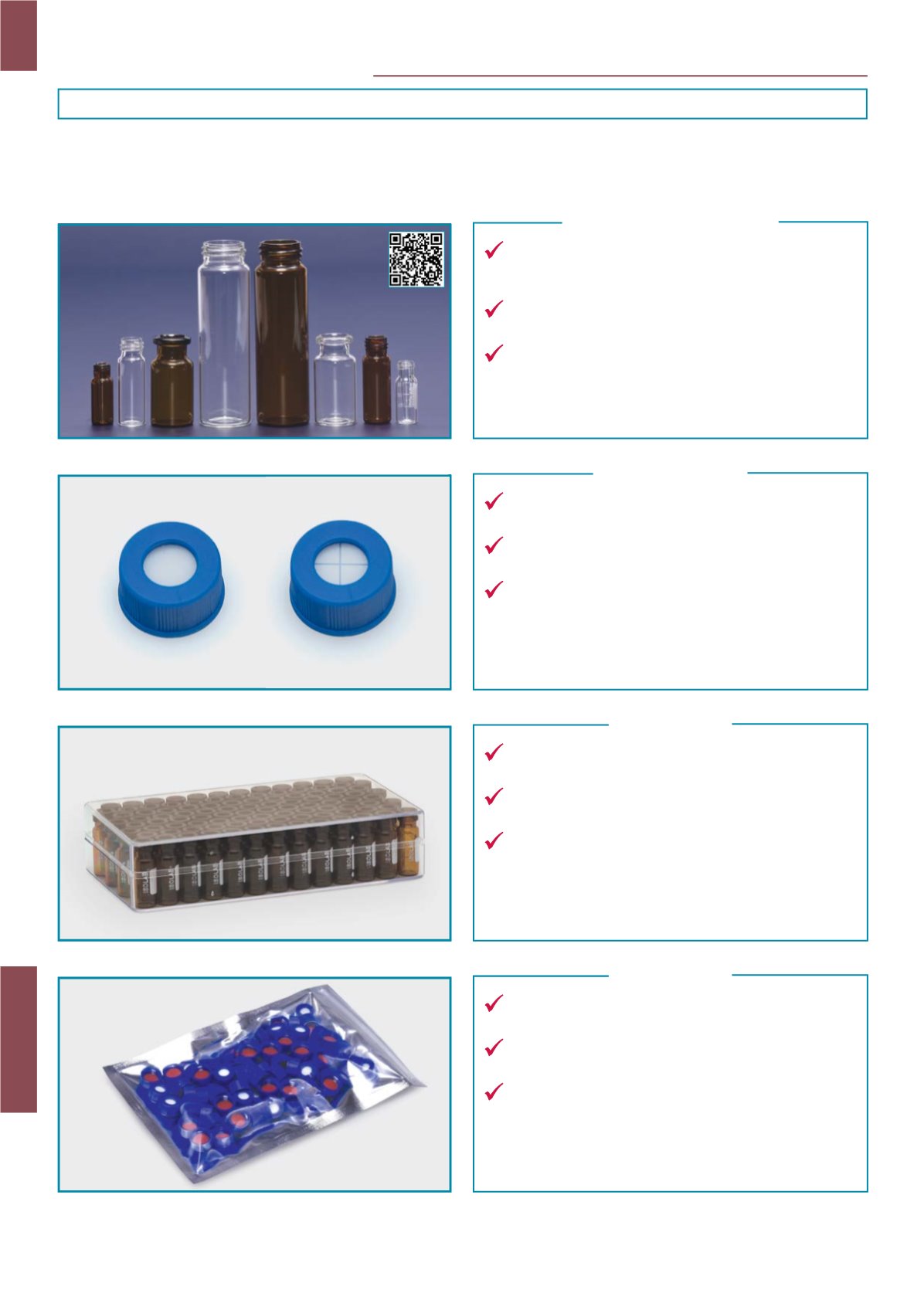

chromatography & spectroscopy
170
CHROMATOGRAPHYVIALS & SEPTAS &CAPS
In chromatography a wide variety of vials are used as sample containers. As they are mainly used by
automatic instruments strict obedience of all dimensions is essential for trouble-free tests. Besides of
these physical properties the vials have to fulfill requirements regarding inertness and cleanliness.
chromatography vials
Vials are either manufactured from glass or plastic.
Glass vials are manufactured from 1st hydrolic glass
tubings with low expansion coefficient.
Hydrolic glass quality offers perfect resistance to all
chemicals and higher hydrolic resistance.
Plastic vials are manufactured from polypropylene with
a very good resistance to most of the chemicals and high
hydrolic resistance.
septas & caps
Sealing units for vials are combination of caps and
septas. Caps can be offered either with slit or without slit.
For problem-free and correct results seals should also
be inert and uncontaminated.
Almost all septa are laminated on one side with PTFE,
which has a high chemical resistance and forms an inert
barrier between the sample in the vial and the cap of the
septa.
vial packing
Some vials (specially small size ones such as N8, N9
and N11) are packed in a polystyrene boxes.
This kind of packing provides guarantees protection
against dust and other enviromental effects.
The glass clear polystyrene box makes the vials always
clearly visible at all times.
cap packing
Caps are usually packed in tamper-proof evident zip-
locked bags.
These bags allow easy identification of the content due
to the transparent P.E material.
The zip-lock enables resealing of the bag after used.
vial cap without slit
vial cap with slit
















